Leadership in Westmoreland County ensures smaller communities have big needs met
When the COVID-19 pandemic led to stay-at-home orders and business closures in southwestern Pennsylvania, larger cities, such as Pittsburgh, were able to quickly mobilize resources and ensure basic needs from food to transportation were met. In small rural communities, the safety net infrastructure is often not as robust. The Community Foundation of Westmoreland County (CFWC) worked to reinforce that safety net in the 65 municipalities that it serves through community calls.
Throughout the coronavirus pandemic, CFWC Executive Director Phil Koch worked with Dirk Matson, director of behavioral health and developmental services for Westmoreland County, and Alyssa Cholodofsky, Westmoreland region director of United Way of Southwestern Pennsylvania, to organize weekly community calls, where organizations hear from speakers including the county commissioner, health officials, education leaders and the director of the Westmoreland County Food Bank, among others.
Before the pandemic, CFWC and other organizations participated in monthly human services providers meetings hosted by Westmoreland Community Action, one of the county’s larger human services nonprofits. When those meetings stopped amid the pandemic, CFWC stepped in to fill the gap.
According to Koch, the idea for the calls came about after hearing from staff at a number of nonprofits and human service organizations who felt that there was not very strong communication among county leadership and human service providers. After making a few phone calls to more key leaders in the county, that sentiment was confirmed for Koch.
“Communication and coordination are key during times of crisis so that we can respond quickly, accurately and efficiently throughout the county,” Koch said. “While the process of hosting weekly calls between county leaders and others was already going on in Allegheny County, it wasn’t happening in Westmoreland. Here at the community foundation, we have the technology and staff to put that together, so we decided to host the calls to enable organizations in the county to engage with one another and build relationships during the pandemic.”
Cholodofsky shared similar views regarding the benefits of staying connected to community partners and learning about the needs that organizations are working to fill for the people that they serve. “It is important to share up-to-date information about the support available to people in Westmoreland during this health crisis, and the nonprofit community is a key connector for all types of resources – food, housing and other emergency services.”
Following one of the calls, Koch received emails from two area nonprofits, Feeding the Spirit and Knead Community Café, both expressing a dire need for masks. Feeding the Spirit, which normally offered a weekly soup kitchen to residents, switched its operations to provide Saturday meals in the park where people come pick up food. Similarly, Knead Community Café, a pay-what-you-can restaurant in New Kensington, converted in-person dining operations to a meal pickup system. The two organizations voiced concerns that in addition to their own employees and volunteers not having personal protective equipment (PPE), many of the people they served were showing up unmasked, as well.
Koch believed that if two organizations were contacting CFWC at the same time with the same need, then the demand must be much higher and widespread. He first contacted the Westmoreland County Department of Public Safety Director Roland “Bud” Mertz, who had obtained about 1,000 masks from the state and agreed to put aside a thousand masks for human service providers.
“Because we already had an established infrastructure in place to request, receive and distribute PPE for our first responders, we wanted to be able to provide the same service to our nonprofit organizations,” Mertz said. “During such a chaotic time, it was relieving to have these partners to rely on for assistance and additional resources to best serve our county residents.”
As Koch reached out to more organizations, he realized that those 1,000 masks were going to be gone in a day. “In addition to Feeding the Spirit and Knead Café, the food bank, Westmoreland County public transit and a whole host of other places were in need of masks. So, I knew we were going to need some extra help.”
Koch reached out to Global Links, an Allegheny County-based nonprofit that aims to get medical supplies in the hands of countries all over the world. Already working to help organizations in Allegheny County, Global Links staff were not sure if the organization had the resources to also dispense PPE to those in Westmoreland County. With help from CFWC and county organizations to facilitate and oversee the distribution of masks in the area, however, Global Links agreed to donate 37,500 masks.
Eager to help, Habitat for Humanity in Westmoreland County stepped up to store the masks. Mertz and his public safety team were able to set up a contactless distribution system and create a request form where organizations could ask for a maximum of 1,000 masks per request.
“Mass distribution of masks throughout the human services sector is a great example of ways in which foundations can partner with nonprofits and compart with public entities such as the Department of Public Safety,” Koch said. “It’s a great example of cross-sector collaboration to create systems that can keep people safe and meet need.”
The calls occurred weekly in April and May, but, as the region progressed out of the red phase, Koch, Matson and Cholodofsky thought it best to switch to monthly calls until further notice.
Westmoreland Community Action has since resumed its monthly human services providers meetings, so Koch and the Community Call team will continue to reassess if there is still a need for the CFWC-facilitated calls going forward.
“This process has demonstrated that we truly are stronger together,” Koch said. “It has shown us that we are more effective and powerful when we collaborate. We’ve proven that, in times of crisis, we can come together to find solutions, lift each other up and spread hope throughout the community.”
